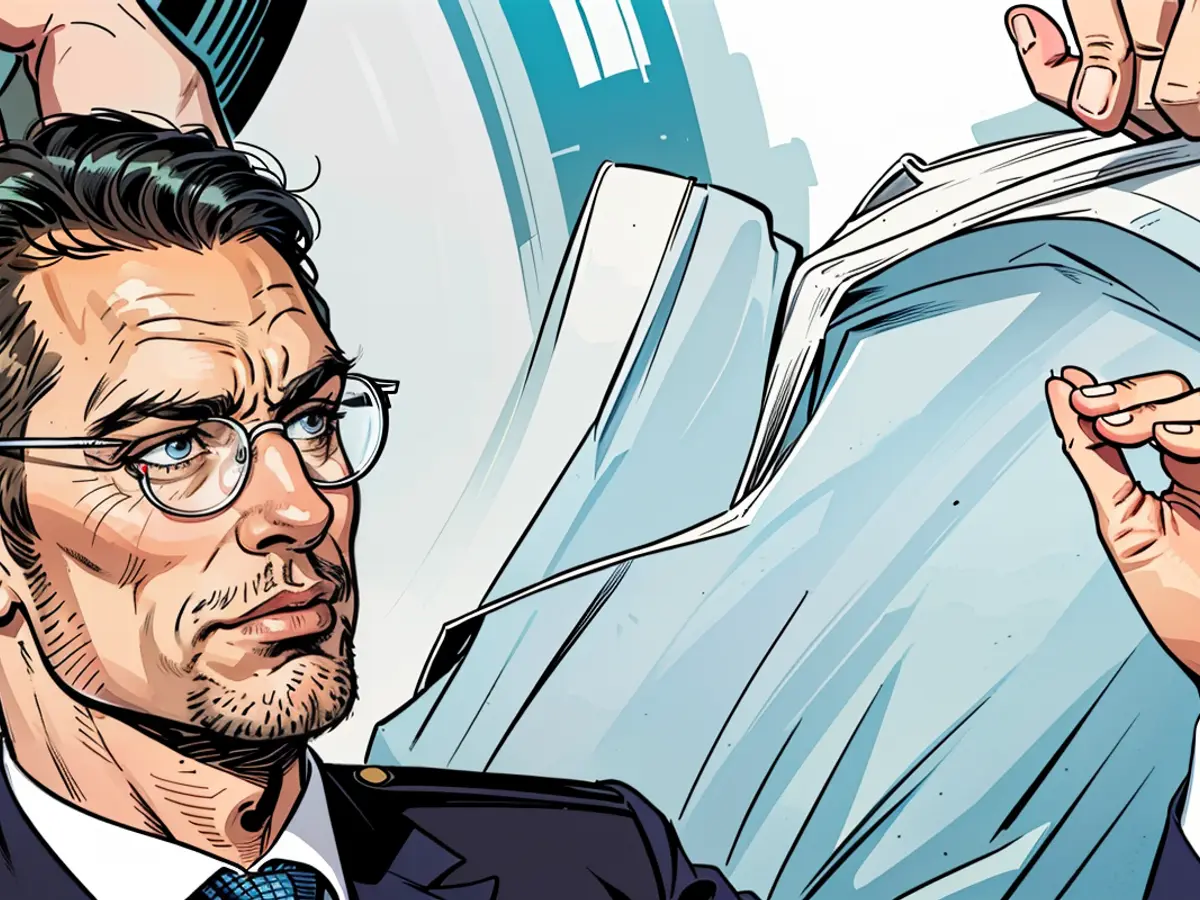Political gatherings or social functions. - CDU members consider a potential partnership with BSW.
The leader of the CDU, Friedrich Merz, has ruled out a federal-level coalition with the Left Party (Die Linke), led by Sahra Wagenknecht. However, some CDU politicians are now considering working with them at the state level. Merz made it clear in Düsseldorf that a coalition on a federal level was not an option. But when it comes to state-level politics, he suggested, it's important to carefully consider who represents the Left Party in a particular region.
Mario Voigt, North Rhine-Westphalia's Minister President and a CDU politician, doesn't consider the Left Party to be an issue in his region. In the European elections in North Rhine-Westphalia, they only received 4.4% of the votes. "It's irrelevant here," said Voigt. "But in the states where it matters, they will decide that properly."
Armin Laschet, who was the CDU party leader until 2022, also stressed that there was no absolute rejection of coalitions with the Left Party on the part of the CDU. "You can't dismiss a movement that hasn't even defined itself yet by saying you won't work with them," said Laschet in a radio interview with Deutschlandfunk. "The focus is on getting democratic majorities in the three eastern German states in the upcoming state elections." Laschet was referring to Saxony, Thuringia, and Brandenburg.
Recently, Merz was asked whether he would consider partnering with the Left Party to prevent right-wing minister-presidents in the east. In response, he said that his party does not work with "such right-wing and left-wing parties." Merz described Wagenknecht as being right-wing on some issues and left-wing on others.
When asked about this, Merz said on Tuesday that there were no common ground in politics with this grouping. He added that his previous statement was made from the perspective of federal politics and that he would wait for new election results before considering any further action. He then indicated that he would talk with CDU state chairmen and see if there were different viewpoints.
Voigt, the CDU chairman of Thuringia and its candidate for the state election, stated that he wasn't opposed to a state-level coalition with the Left Party. He said that power in the region would be decided by the people of Thuringia. Voigt also noted that he planned to focus first on political change and tackle the issues that matter to the people before engaging in any coalition discussions.
With poll ratings of 13 to 16%, the Left Party could become a pivotal player in the forthcoming state election in Thuringia.
Read also:
- Despite Merz's stance, some CDU politicians in North Rhine-Westphalia, led by Armin Laschet, are open to exploring state-level partnerships with the Left Party (Die Linke).
- In the state election in Thuringia, the Left Party, with poll ratings between 13% and 16%, could hold significant influence.
- In the European elections in North Rhine-Westphalia, the Left Party only managed to secure 4.4% of the votes, making it less of a concern in that region according to Mario Voigt.
- Merz, the CDU leader, has previously stated that his party does not collaborate with both right-wing and left-wing parties, including the Left Party led by Sahra Wagenknecht.
- Sahra Wagenknecht's political stance is described by Merz as having elements of both right-wing and left-wing ideologies.
- Hendrik Wüst, the current CDU party leader in North Rhine-Westphalia, hasn't yet publicly commented on the possibility of a coalition with the Left Party.
- The Left Party is gaining attention as a potential partner for both CDU and SPD parties in the state election in Thuringia, Erfurt.
- The German Parliament (Bundestag) in Berlin is likely to be affected by the outcomes of these state elections, particularly in the eastern states of Saxony, Thuringia, and Brandenburg.
- Germany's CDU is actively considering working with the Left Party (Die Linke) at the state level, despite Merz's strict stance against federal-level coalitions.








